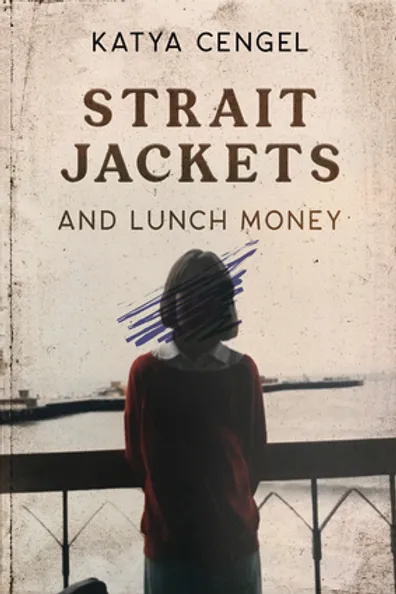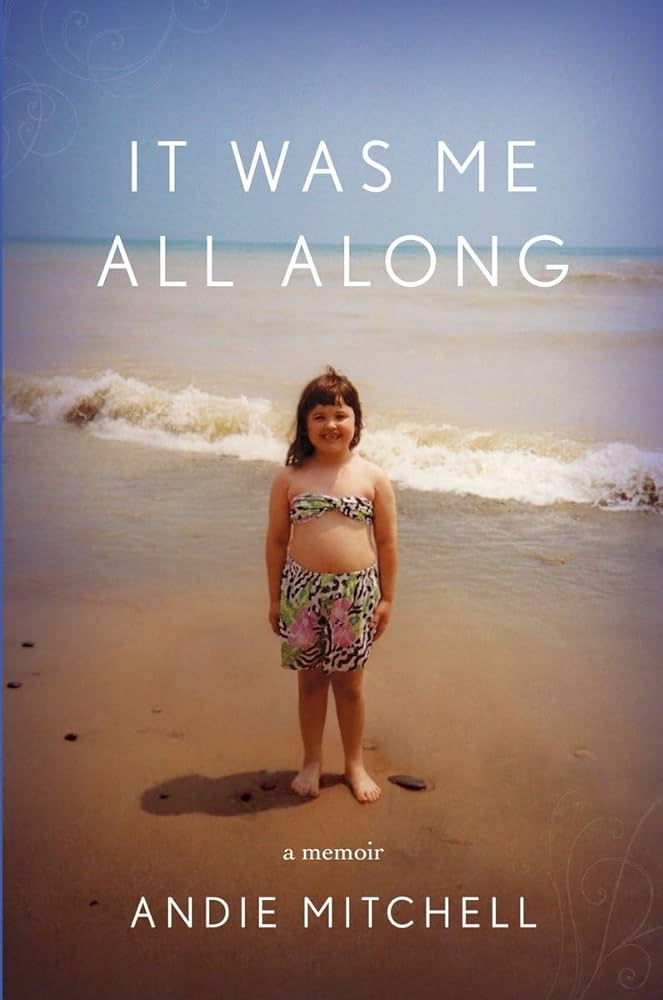By Deborah L. Hall
on Reckless Steps toward Sanity: A Memoir by Judith Sara Gelt
I was so immersed in Judith Sara Gelt’s memoir Reckless Steps Toward Sanity about her life growing up in a Denver neighborhood in the 1960s and 1970s that I kept entering a time warp. It’s not fair to Gelt’s story that my own memories of living during the same era kept flashing through. Gelt sent my senses hurdling back in time with the mention of TV shows or magazines, filling my head with jingles and laugh tracks and the sound of Stevie Wonder’s voice. I heard the drumming of horses’ hooves from Bonanza and the vibraphone’s nose twitching from Bewitched.
In this way, not only does Gelt use surprising details from cultural signposts of an era a half-century ago, immersing readers in her tale of adolescent survival, but she also paints an excruciating journey of a young woman living under a patriarchal thumb with a mentally broken and absent matriarch.
One of the most original features of Gelt’s memoir is that her journey is organized in a taxonomy measured in steps that function like chapters. Each step acts as a survival guide, an instruction manual toward achieving a sane adulthood, beginning with “Step #1. Act Out” and ending with “Step #9. Face Facts.” If lives can be gifts and the recounting of one life a connection for the rest of us, Gelt’s gift is that she takes you back to the past so soft-handedly that when she describes a scene in which the phone rings and the caller is silent, anyone who has listened to the deep abyss of a wire line connected to a quiet breath will remember the feeling: Someone is there. With it will flash the memory of wrapping your fingers around the cord or slamming the phone onto the cradle, so that you’ll need to pause again and again to marinate in all the lost sensations and beauty of a more connected and visceral era.
Craft-wise, Gelt slips seamlessly in and out of scenes, balanced by specific summaries. The result is that we move along quickly, indulging in the movie of her life, voyeurs, an audience in a coming-of-age Survivor show. Critic Kelly Barbagos, writing in the Mom Egg Review, agrees: Gelt “has pulled back the curtains and left the lights on, allowing readers a clear unobscured view of her family.” I found myself copping a seat next to Gelt, watching Laugh-In and Mission Impossible, riding busses, borrowing cars and getting high at concerts. Throughout the memoir, I was remembering the era while living her life as she told it.
Like Mary Karr’s Liar’s Club, Reckless Steps Toward Sanity wrestles with a father’s cruelty, and like Jeannette Walls’s Glass Castle, with a mother’s mental illness. But unlike those classics, Gelt’s story expands to the wider world more often than narrowly focusing entirely on her family. For example, the Denver-based narrator runs away from home and is saved by a single mother in Lubbock, Texas; she is institutionalized, living for a while in a psych ward. From home, she sneaks out to attend Buddhist prayer meetings in Aurora (outside of Denver), and when she is thrown out on her own, she shares a first apartment in downtown Denver with a friend from work. There are many shifting contexts: concerts; time in Kansas City, Kansas; Greyhound bus stations; college; and the mountainous landscape and weather of Colorado peppering this memoir’s world.
At sixteen, a series of events leads Gelt to attempt suicide by swallowing her mother’s pills. What begins as a queen-sized betrayal by her mother who, apologizing for being a lousy parent, says, “If I had to do it all over again, I’d never have children,” ends with Gelt, seeking help from a friendly teacher who forcibly French-kisses her and puts his hand in the distraught teen’s bra. After she fends him off, he accuses her of being a tease. Broken adults who misuse their power are everywhere in this memoir.
After the suicide attempt, Gelt lands in a psychiatric ward; she’s lost her will to live. While I have not experienced such a grave trauma, Gelt reproduces the mind-frame of a severely depressed teen sufficient to make me feel like I was crawling out of the same hole. Here, she describes the weeks that passed with her therapist as she convalesced from her mental break. The description captures the smeared and blurry passage of time:
The idea of a tolerable existence drifted, and I couldn’t hold on, couldn’t pull it close enough to trace its contours, detect safe terrain. And how to explain the pills, my past, my feelings? Where would I unearth the words? Regardless, I must have listened while he talked, and I must have talked while he listened. Over time, possibility plowed through hopelessness.
In “Step #2. Run Away from Home,” the triggering incident that launches a fraught decision to march out of school, past the parking lot, onto the interstate highway, and, in her school uniform, throw out her thumb hoping to hitch a ride to anywhere but here—brought on by a shameful attack by her father. Within earshot of her ailing mother—she suffers from bipolar disorder—Gelt’s father accuses his daughter of pretending to love her mother in order to borrow her car. He uses his wife in order to guilt his daughter. Gelt is overwhelmed by his emotional manipulation. It’s a blow to an already fragile kid.
Luckily, Gelt catches a ride with an affable college-age man on his way home to Texas and settles in for a ride without any money of her own, a toothbrush, or a change of clothes. The ride is excruciatingly uncomfortable as Gelt does not want to reveal her situation, fearing he’ll dump her or she’ll make the unwitting driver an accessory to her escape. As he and she hasten away from Denver, Gelt paints a vivid picture as the landscape changes and flattens out the blue two-door’s window:
Soon, we passed nothing but dusty, level fields crowded with bundles of tall blue grama grass, now bleached brown, and clumps of silver-leafed rabbit brush drying into tumbleweeds that would bounce like beach balls in gusty winds until getting stuck behind fences. The bloated sun climbed. A row of mountains in shades of gray was propped against a background of vivid blue sky—a flat stage set at the horizon.
It’s a painterly description written with a poetic sensibility. Reckless Steps Toward Sanity is full of this kind of rich language that breathes so much life into the narrative that some readers may favorably mistake Gelt’s experiences for their own.
In contrast to the wide-open, blue-skied possibilities that seem to lie ahead for Gelt during the ride from Denver, the uniform-clad sixteen-year-old, once dropped off alone in downtown Lubbock, Texas, is met with the dirty, gray reality of hotel clerks telling her, “We’re not hiring.” Finally, one clerk gives her a $5 bill. The small kindness has the effect of bursting her fantasy of independence—the romance of finding a job and living without her parents. Defeated, she resolves to call the emergency number her rescue-driver had given her.
This second fetching by the driver allows Gelt a night with his family, the Conovers. For a short time, she relaxes and enjoys a meal with him and his mother who converse easily. I wanted the pair to invite Gelt to stay and give her an option; instead, arrangements are made to send her home. Kind people, the Conovers of Lubbock are only a brief, one-night reprieve from her life in Denver.
The next day, Gelt spends a morning and afternoon waiting at the Greyhound station. When she finally boards and settles in, Gelt’s description of leaving the terminal beautifully transfers her plight into her body. I feel the weight of her attempted flight, her willingness to work, the dashed hope of extricating herself from her own family and the disappointment she has returning home. Gelt writes: “Scrunched on my side as the bus pulled out, I braced for the turn.” Readers may also brace not just for the physical turn but a return to dysfunction.
Along the way, Reckless Steps Toward Sanity boldly wrestles with matters of the female body, recounting early humiliations of Gelt’s first period, breast growth, and first bra, which all come too soon. Later, she describes losing her virginity quite mechanically, after hanging out and getting high with a boy named Jim while Steppenwolf crows “Born to Be Wild” in the background. Continuing the adventure in “Step #3. Change Religions,” Gelt experiments with Buddhism, hiding her shrine in her closet from her Jewish parents. Many of these scenes are as refreshing to read—reminders of certain American-based trials of teenage desire and the search for meaning during adolescence—as they are uncomfortable.
Arriving home late at night after a concert, Gelt is surprised by a stranger who lunges out of the bushes and attacks her. It is a harrowing and traumatic event as he pulls her away from her house at gunpoint and rapes her. After it is over and he stands over her, Gelt braces for a bullet. Instead of shooting her, he commands she count to 1000. She does. The most amazing thing is that she has the strength to go straight to her parents, then to the hospital and the police, where the male officer’s interrogation is textbook 101 on how not to talk to a rape victim. So much of the rest of the memoir deals with her healing from this ordeal, yet her rapist is never caught; however, the purse he stole shows up, weeks later, missing only her Buddhist prayer book.
With a slap across the face by her father, Gelt’s final break from her family is assured. What ensues is a period of low-wage work, sharing an apartment with a woman who has a worse story of violence and abandonment than Gelt’s—which seems to save Gelt from falling into victimhood or self-pity. During this time, Gelt makes money from sex, enough to build her savings. Sex is a means to end: to move on. There is a stint at a typing job, a return home, college courses, and meeting Jack, her first husband, first divorce, and more demeaning behavior from her father who cannot speak to his daughter without insulting her. Although attempts are made, they never reconcile.
Gelt’s mastery in choosing when to summarize and when to be specific helps moves the narrative across large swathes of time. Reckless Steps is a memoir, but autobiography, a life in total, seems a better categorization. Steps #7, #8, and #9 cover her second marriage, her daughter’s birth, an abortion due to her husband not wanting a second child, as well as the deaths of her father, sister, and, eventually, her mother. Gelt reconciles with her brother as friendship and respect grow over time. Gelt’s father dies without her saying goodbye, but we understand why.
Part of surviving for Gelt lies in her own self-determination that which her mother was unable to do. Gelt is a psychological model of how to survive the tumultuous manipulations of a father whose power is neither confronted nor checked by his wife. Her mother’s sweet fealty for her husband is an act of self-abandonment, causing her to exist like a shadow in her daughter’s life.
In the final scene of Reckless, Gelt is snug and warm in a house of her own in Denver, watching a snowstorm blow across the landscape—a loyal yellow lab at her side. It’s the end of the third day of sitting Shiva for her mother. The scene shows a woman who has survived the wreck of her childhood and the emotional dysfunction of her parents and other authority figures. She watches a storm while also basking in the calm that her brother’s connection and respect has given her. It’s a hard-won peace and the feeling seems as satisfying for readers as it does for the author.
University of New Mexico Press
$19.95 Paperback | Buy Now
Deborah L. Hall has had her work published in River Teeth, The Literary Review, The Arkansas Review, The Sun, Apalachee Review, and other journals. She edited a textbook on craft, The Anatomy of Narrative: Analyzing Fiction and Creative Nonfiction. Her writing has been anthologized in On Becoming (U of Nebraska Press, 2012) and Stone, River, Sky: An Anthology of Georgia Poems (Negative Capability Press, 2015). From the Glades area of South Florida, Deborah L. Hall teaches creative writing and contemporary literature at Valdosta State University in Valdosta, Georgia.



































































































































